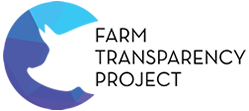News & Media > Editorials > The five freedoms and the moral bankruptcy of the RSPCA
The five freedoms and the moral bankruptcy of the RSPCA

On the RSPCA’s website, you can read about the Five Freedoms of animal welfare and how they have played a crucial role for more than 30 years in RSPCA’s consideration of policy, particularly for farmed animals. Reading on, the RSPCA discusses that in recent years animal welfare has moved beyond this framework, which only meets the basic needs of animals, to consider the complex emotional needs animals have. Let's look at how the RSPCA’s own farming scheme stacks up against the five freedoms framework, that even they suggest is redundant in meeting the complex needs of animals, and see if they have in fact moved beyond the Five Freedoms. Ultimately, consumers need to examine whether an animal protection organisation is morally consistent when they are setting out standards by which they believe you can ‘ethically’ exploit the very beings they are meant to protect, while profiting off these same animals in the process.
The Five Freedoms:
1. Freedom from Hunger and Thirst
2. Freedom from Discomfort
3. Freedom from Pain, Injury or Disease
4. Freedom to Express Normal Behaviour
5. Freedom from Fear and Distress
The Freedom from Hunger and Thirst
From the outset this freedom is one that is likely to be met voluntarily by all producers of animal-based products, whether RSPCA approved or not. This is not to say there aren’t producers who neglect the basic need animals have for feed and water. However, looking at this from an economic viability perspective – it is in the best interests of farmers to feed and give water to their animals. Animals that are denied food and water will die - this is not economically viable for producers when their income relies on the eventual slaughter of these animals.
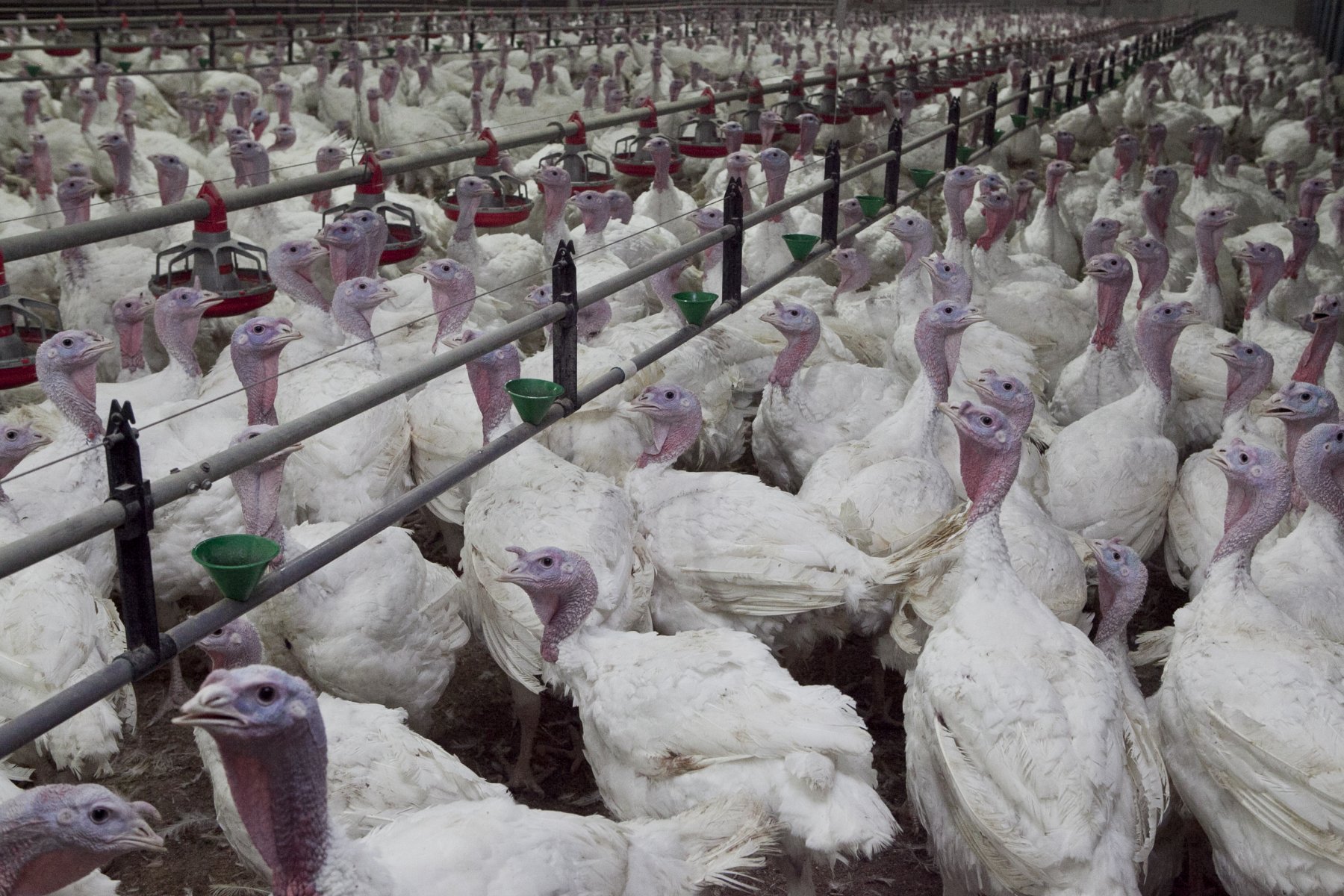
The RSPCA standards set out that animals should have unrestricted access to feed and water, and that this food and water must meet their requirements. There is more to be said on whether the diet provided to farm animals is one that is within the best interests of animal health, or whether it is one that instead promotes rapid growth, which is ultimately done so that more animal products can be produced in a shorter space of time to generate a higher profit.
The Freedom from Discomfort
Discomfort is, by definition, “slight pain, a state of unease or something that makes one feel physically uncomfortable”. Stocking densities set out by the RSPCA, though marginally less than that of industry standards, still have animals housed with unnaturally large groups. Turkeys, for example, can be housed with up to 16,000 others in one shed and broilers (meat chickens) can be housed with up to 30,000 other individuals in one shed.
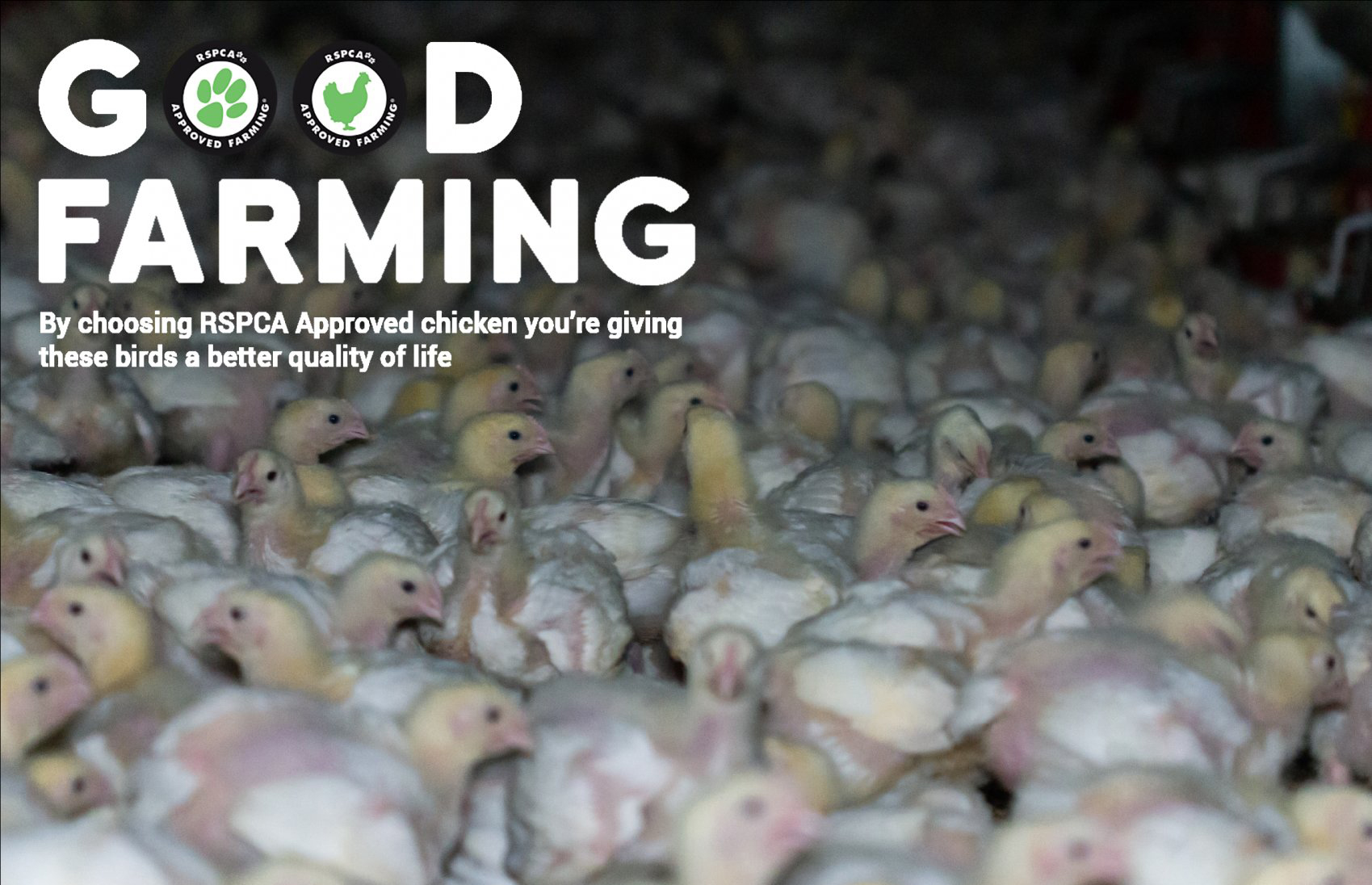
Birds establish pecking orders within their flocks, however when housed in intensive farming sheds, RSPCA accredited or not, they are unable to establish these pecking orders. This causes stress, unease and aggression among the flock as they are unable to understand their place within their social environment. Keeping animals housed in unnaturally large groups means that these animals will always experience discomfort. This is but one example of how the RSPCA’s approved farming scheme is failing to uphold the second freedom of the five freedoms, upon which their framework is based. It is an absolute impossibility for animals in factory farms not to experience discomfort, and it is unethical for the RSPCA to suggest otherwise to consumers who trust their reputation in caring for animals.
The Freedom from Pain, Injury or Disease
This freedom is based upon the physical health and wellbeing of an animal; that they are free of physical injury, disease or pain. Firstly, it is essential to contemplate how selective breeding of farm animals to grow to larger sizes more rapidly has affected their physical health and wellbeing. For example, turkeys have been selectively bred to grow at such a rate that they can be slaughtered as young as 10 weeks old. Turkeys grow so large that they are unable to mate naturally, and artificial insemination is used across the turkey industry within Australia and the wider world. Turkeys commonly experience leg issues, growing too large to support the weight of their bodies (a problem also commonly seen on broiler farms). Due to this rapid growth brought about by human intervention, it has been observed that the internal organs of turkeys struggle to meet the demands of their metabolism, as well as being less capable of handling heat stress.
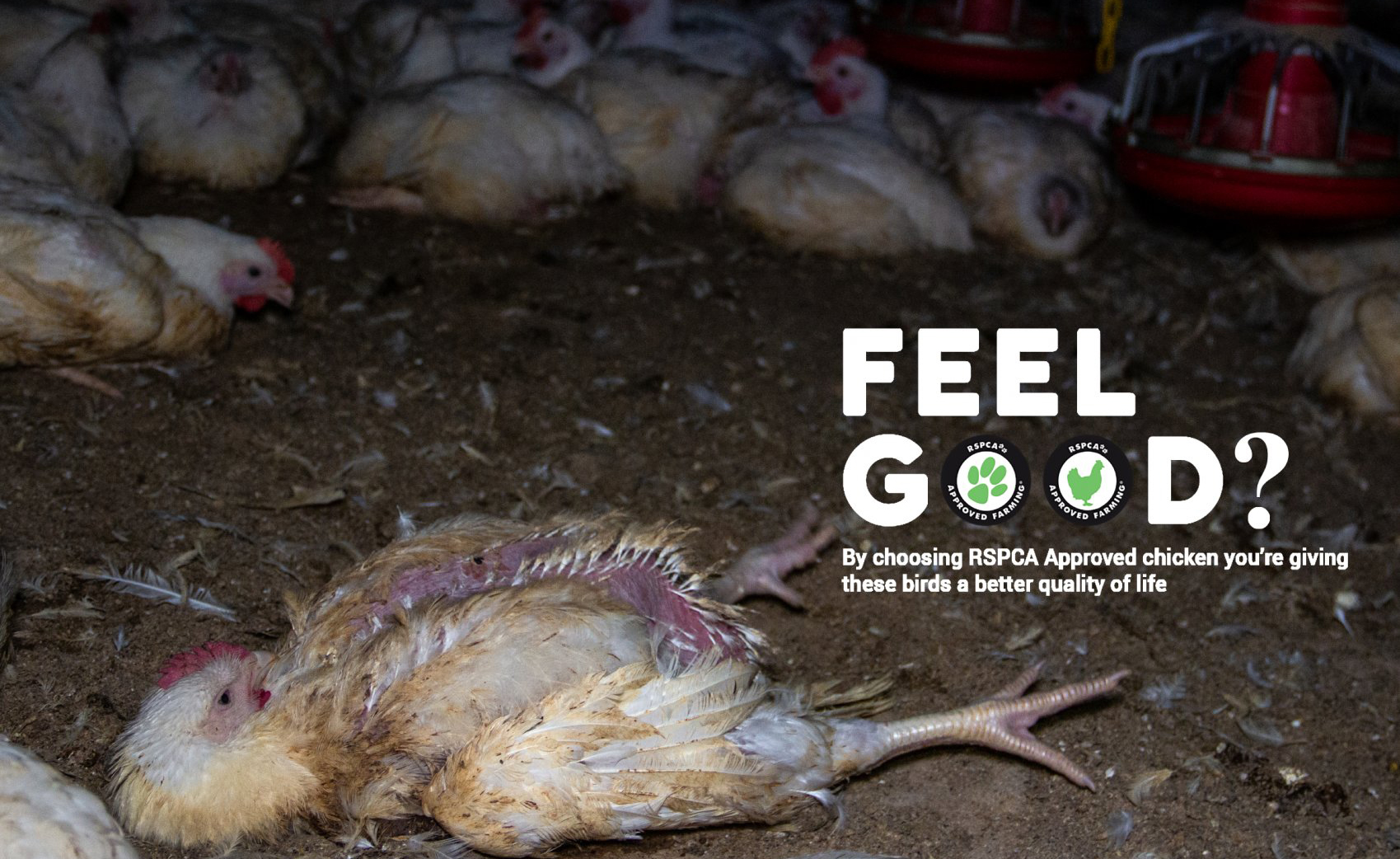
The RSPCA outlines within their standards for approved producers that a veterinary health plan must be in place on approved farms. The standards also outline that animals must be checked on regularly, mortality and cull rates (deaths and euthanasia rates) of birds must be recorded, and that this plan must be maintained annually. The key question to ask here, is how can this freedom be truly granted to an animal whose body is predisposed to fail them? What moral and ethical justification can be applied to continue breeding animals when we possess this knowledge? For the RSPCA to even suggest that this freedom can possibly be applied to these animals is a poignant reminder that the RSPCA themselves profit from the animals within these systems, a conflict of interest that is explored further below.
Manipulation through selective breeding not only applies to turkeys in the animal agriculture industry, but most animals that are bred for human use across the globe - their bodies are modified through human intervention, causing health problems their ancestors would have seldom faced. These health problems are a direct result of prioritizing profit over the health and physical wellbeing of animals and are a symptom of the larger problem – prioritizing profit over life.
The Freedom to Express Normal Behaviours
Animals are complex beings that have social behaviours and interact with their environment in ways that are unique to them. Pigs for example have the cognitive abilities comparable to that of a three year old child. Turkeys have the ability to recognize an area as vast as 1000 acres. Broiler chickens, when given the opportunity, will dust bath in the dirt to keep their feathers clean and in healthy condition. The RSPCA sets out ways in which their accredited farms must provide ‘enrichment’ for animals. For example, in broiler chicken farming, this enrichment can be seen in the form of 3 link plastic chains that hang from the chickens feeders. This is said to provide mental stimulation to the birds in these intensive farming sheds.
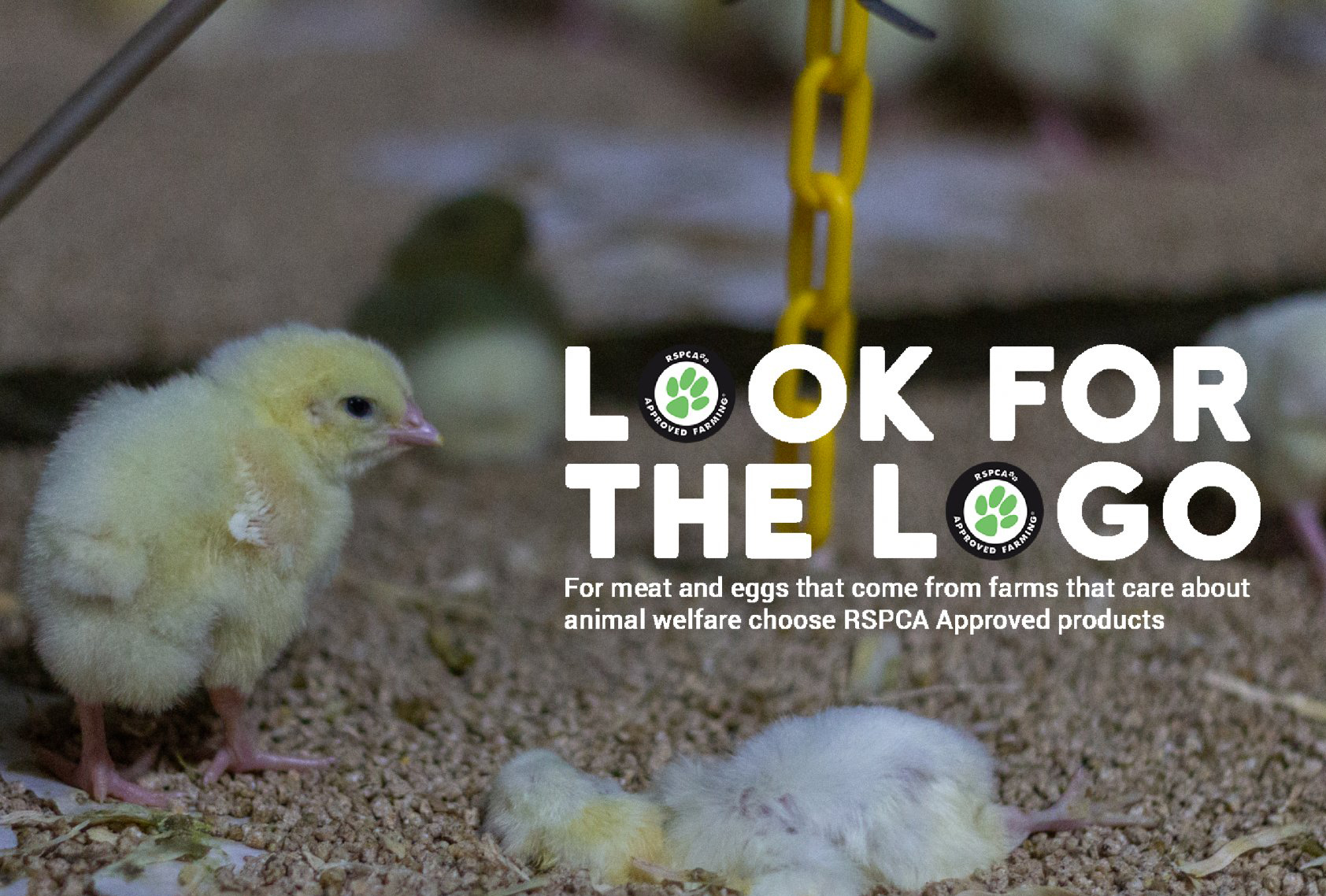
However, in an environment so vastly different from what is ideal for these animals, the RSPCA’s standards for providing enrichment are superficial. They make little tangible difference to the lives of these animals when comparing them to what industry standards set out. The notion that animals in RSPCA accredited farms are able to be afforded the freedom to express normal behaviours is simply untrue. In fact, claiming that any animals being kept in intensive farms can be afforded this freedom is a fallacy.
The Freedom from Fear and Distress
There are more exposés into Australian slaughterhouses, which can be found at the click of a mouse, than ever before. There is one thing that rings true every time – that animals in slaughter facilities experience fear and distress. The sounds, smells and sights within abattoirs are truly terrifying, for humans and animals alike. We operate under the notion that in Australia we have standards that protect animals in our agriculture system; instances of cruelty are brushed off as rogue operators and the humane narrative of animal farming and slaughter continues. The RSPCA sets out standards by which they claim alleviates animals from stress at the point of slaughter. An example of this, from their standards for turkey slaughter, is to handle them in a way that reduces the occurrence of wing flapping. By-and-large these standards are trivial when applied in a practical sense, analysing how they could possibly alleviate animals from fear and distress at the point of their slaughter.
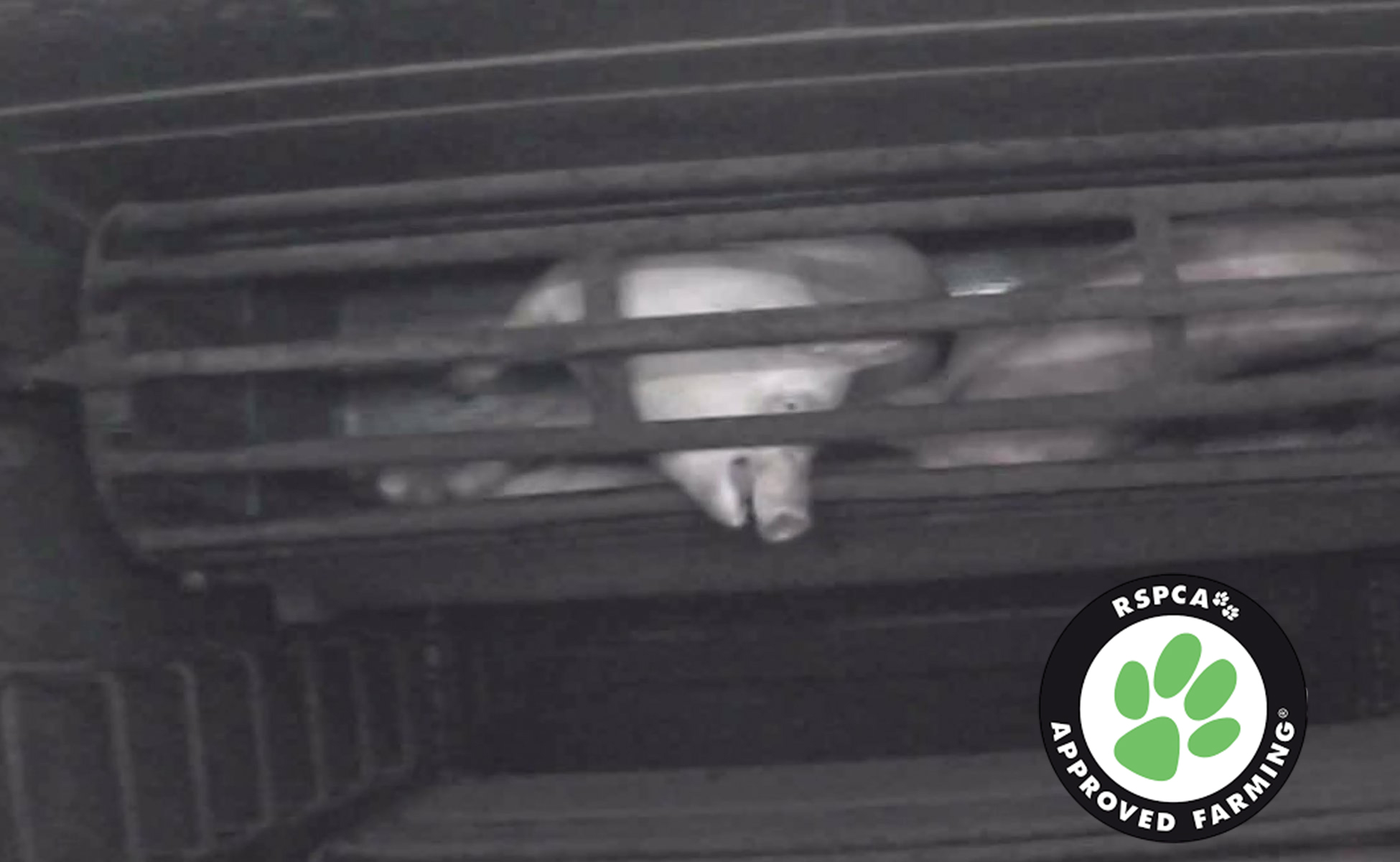
If we were to apply this freedom to the likes of a dog or a cat, killing them would fall on the opposite end of the spectrum, and in fact, be considered inflicting fear and distress rather than affording them freedom from it. No matter the way we were to kill them, the answer would be the same every time. One of the RSPCA’s key selling points for its approved farming scheme is that it is forging the way for the humane raising and slaughter of animals. Humane slaughter, by definition, is an oxymoron. Humane means to show compassion or benevolence, while slaughter means to kill (a vastly different concept to ‘euthanasia’, it must be pointed out, despite industry’s attempts to conflate the two). The notion that someone can be shown compassion or benevolence whilst being unnecessarily killed for profit is one that serves to protect consumers from feeling any culpability in the process of animals suffering for their food.
Financial incentive
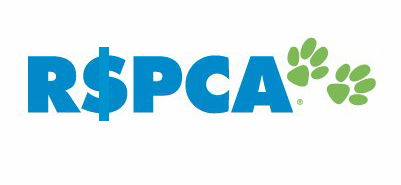
The single most important factor to consider when deciding whether the RSPCA are acting with the best interest of animals at the forefront of their scheme or are morally inconsistent in their practices, is what financial gain they attain from this scheme. The RSPCA receive a percentage for every product sold under their approved farming scheme. A clear conflict of interest can be seen at the intersection of animal welfare and profitability, and each time the animals lose. The RSPCA fail each animal confined in factory farms that they sell their approval to, and by upholding the notion that animals can be exploited in a way that is humane, they also fail the consumer. There is no humane way to exploit or kill someone who does not want to die.

 Farm Transparency Project (FTP)
Farm Transparency Project (FTP)
